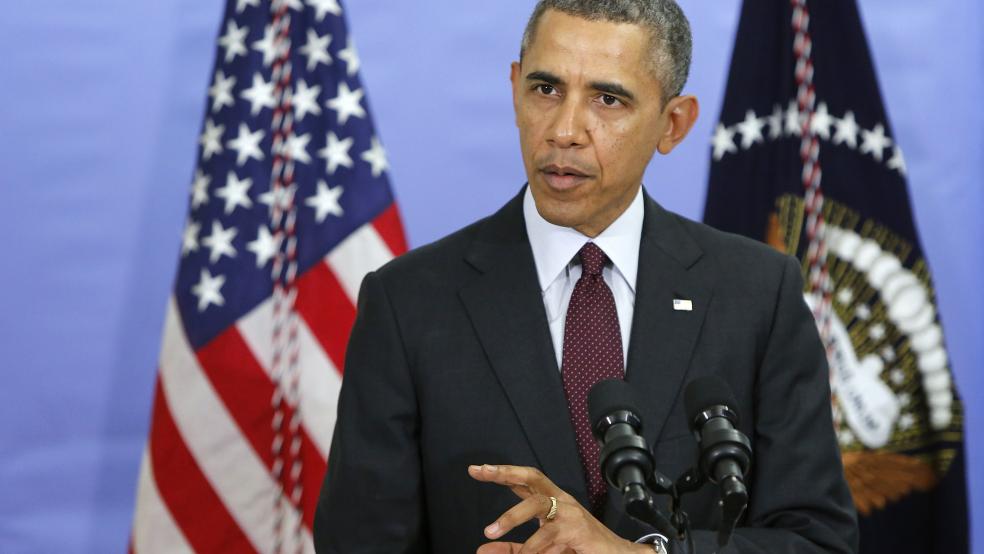In March, Boko Haram gunmen launched an attack in Maiduguri, a city in northeast Nigeria, attempting to free inmates from a military barracks where they were being held. The attackers fled, and then the Nigerian military arrived and rounded up as many as the escapees as they could find.
“The former detainees were in a classroom. They started screaming ‘We are not Boko Haram. We are detainees!'" a witness told Amnesty International. "My neighbors and I saw the soldiers take the men to a place called 'no man’s land,' behind the University of Maiduguri. We watched as the soldiers opened fire killing all 56. They were killed in front of us. All of them.”
Related: Why Boko Haram Might Be Impossible to Stop
A report by The New York Times suggested that Boko Haram wasn’t a part of the incident at all. The Times also reported that Nigerian warplanes fired indiscriminately on a crowd as they tried to flee the scene. Amnesty International estimates that some 600 people were killed by the Nigerian military as a result.
This kind of violence by the Nigerian military is not an isolated incident; according to Amnesty International and Human Rights Watch, the Nigerian military has committed numerous human rights violations and displaced thousands in its campaign against Boko Haram. These violations have limited the kind of assistance the United States is giving Nigeria in its search for the kidnapped girls. This dilemma shows why President Obama’s new plan to create a $5 billion terrorism partnership fund, aimed at improving the ability of countries in the Middle East and Africa to respond to extremism, might be doomed.
Across Africa and the Middle East, state security forces have committed numerous human rights abuses in the fight against terrorism. In Kenya, thousands of Somalis and Kenyans of Somali decent have been arrested and detained without cause. According to Human Rights Watch, thousands have been forced back to Mogadishu.
Elsewhere, in the Congo, the United Nations alleges that government forces were guilty of “mass rape, killings and arbitrary executions, and violations resulting from widespread looting” in its fight against an extremist group known as Mouvement du 23 mars. The Congolese troops were trained by the United States.
Related: Why Hillary Clinton Was Right on Boko Haram
Amnesty claims that in Saudi Arabia in 2009, 330 people were arrested on terrorism charges with sentences ranging from fines to execution. The names of those arrested were not disclosed, nor were their crimes.
"These unjust anti-terrorism measures have made an already dire human rights situation worse," Malcolm Smart, Director of Amnesty International's Middle East and North Africa Programme, said in a statement outlining the abuses. "The Saudi Arabian government has used its powerful international clout to get away with it. And the international community has failed to hold the government to account for these gross violations."
Because of these abuses, the United States has to be very careful how and where it spends this $5 billion. It can’t fund security services that routinely violate international laws. But because human rights abuses are so common within militaries in terrorist strongholds like Somalia, Kenya and Nigeria, it will be nearly impossible to prevent this money from ending up in the hands of soldiers who are guilty of the same crimes as the terrorists they hunt.
U.S money is also going to militaries that are notoriously corrupt. Bribes and graft are common in Nigeria, Kenya, Uganda and other countries where the United States funds the fight against extremism. The presence of U.S. money in these countries fuels the perception that Washington is complicit in this corruption, further damaging the image of the United States.
Related: Here’s What Could Get the U.S. Military in Nigeria
Secretary of State John Kerry admitted as much last year, when he condemned the Nigerian military for human rights abuses.
“We are also deeply concerned by credible allegations that Nigerian security forces are committing gross human rights violations, which, in turn, only escalate the violence and fuel extremism.” Kerry said in May 2013.
A Capable Foe
Terrorist in Africa and the Middle East are often characterized as poorly trained and equipped. But that’s not the case; Boko Haram has defeated the Nigerian military at every turn.
They’ve also turned America’s best soldiers. In October, following an attack on an upscale Kenyan mall, SEAL Team 6 raided an al Shabaab stronghold in Somalia. They were turned away.
The next generation of terrorism is a problem that needs to be confronted. Simply throwing money at the problem will only serve to make it worse.
Top Reads from The Fiscal Times





